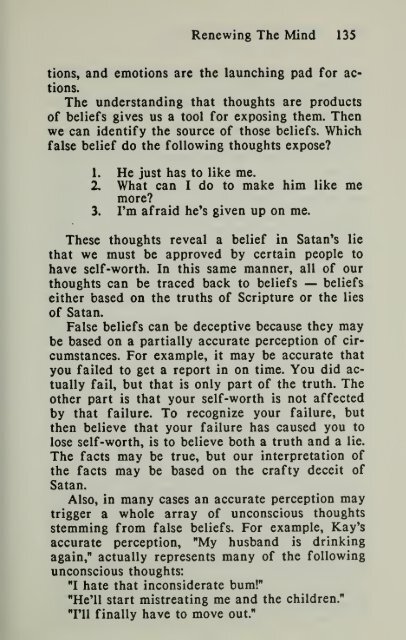The Search for Significance
Robert McGee's best-selling book has helped millions of readers learn how to be free to enjoy Christ's love while no longer basing their self-worth on their accomplishments or the opinions of others. In fact, Billy Graham said that it was a book that "should be read by every Christian." In this timeless classic you will: Gain new skills for getting off the performance treadmill Discover how four false beliefs have negatively impacted your life Learn how to overcome obstacles that prevent you from experiencing the truth that your self-worth is found only in the love, acceptance, and forgiveness of Christ
Robert McGee's best-selling book has helped millions of readers learn how to be free to enjoy Christ's love while no longer basing their self-worth on their accomplishments or the opinions of others. In fact, Billy Graham said that it was a book that "should be read by every Christian."
In this timeless classic you will:
Gain new skills for getting off the performance treadmill
Discover how four false beliefs have negatively impacted your life
Learn how to overcome obstacles that prevent you from experiencing the truth that your self-worth is found only in the love, acceptance, and forgiveness of Christ
Create successful ePaper yourself
Turn your PDF publications into a flip-book with our unique Google optimized e-Paper software.
Renewing <strong>The</strong> Mind 135<br />
tions, and emotions are the launching pad <strong>for</strong> actions.<br />
<strong>The</strong> understanding that thoughts are products<br />
of beliefs gives us a tool <strong>for</strong> exposing them. <strong>The</strong>n<br />
we can identify the source of those beliefs. Which<br />
false belief do the following thoughts expose?<br />
1. He just has to like me.<br />
2. What can I do to make him like me<br />
more?<br />
3. I'm afraid he's given up on me.<br />
<strong>The</strong>se thoughts reveal a belief in Satan's lie<br />
that we must be approved by certain people to<br />
have self-worth. In this same manner, all of our<br />
thoughts can be traced back to beliefs — beliefs<br />
either based on the truths of Scripture or the lies<br />
of Satan.<br />
False beliefs can be deceptive because they may<br />
be based on a partially accurate perception of circumstances.<br />
For example, it may be accurate that<br />
you failed to get a report in on time. You did actually<br />
fail, but that is only part of the truth. <strong>The</strong><br />
other part is that your self-worth is not affected<br />
by that failure. To recognize your failure, but<br />
then believe that your failure has caused you to<br />
lose self-worth, is to believe both a truth and a lie.<br />
<strong>The</strong> facts may be true, but our interpretation of<br />
the facts may be based on the crafty deceit of<br />
Satan.<br />
Also, in many cases an accurate perception may<br />
trigger a whole array of unconscious thoughts<br />
stemming from false beliefs. For example, Kay's<br />
accurate perception, "My husband is drinking<br />
again," actually represents many of the following<br />
unconscious thoughts:<br />
"I hate that inconsiderate bum!"<br />
"He'll start mistreating me and the children."<br />
"I'll<br />
finally have to move out."

















